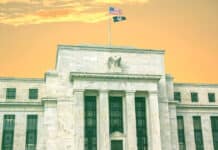
Australian retail investors are at a distinct disadvantage in the bond market.
Credit ratings are an important indication of the perceived future risk of an investment, but brokers are not able to show them to retail investors because of a quirky ASIC ruling.
The credit rating agencies refused to pay higher licence fees for disclosure to retail investors, and so credit ratings can only be shown to wholesale investors.
The ruling really hit home when investors in the ASX-listed Virgin Australia bond were told by the Deloitte administrators they could expect just 9-13c for each dollar invested. Would those retail investors have bought the bonds if they had the same information as the wholesale investors that were shown and understood the credit ratings?
This represents an unfair playing field that unjustly puts retail investors at a disadvantage. Retail investors should be able to see credit ratings and make investment decisions on the same basis as wholesale investors.
In a significant blow, investors in the ASX-listed Virgin bond did not even receive an interest payment.
I understand credit ratings could be relied upon and could be used to sell securities, but they also act as a warning and in the case of Virgin Australia, may have acted positively to prevent some mums and dads investing. We will never know, but it’s painful now to think of the significant loss some will have to bear.
[Also read: Companies Can Help Savers By Issuing More Bonds At Home]
Had the world remained free of pandemics, Virgin may well have continued to operate, albeit with a very heavy debt burden, and investors could have earned the promised 8 per cent per annum for the term of the bond and been repaid at maturity.
In the US, it’s not uncommon for high-risk companies rated by credit ratings agencies as BB+ or below on the S&P Global scale, known as sub-investment grade, to operate for years and years.
Yet unexpected things happen — like 9/11, the tech wreck and COVID-19. Those sub-investment grade companies have less margin for error and the high yield offered is to compensate for a higher chance of default. That is, a missed interest payment or failure to repay face value at maturity.
There is a group of market professionals that feels strongly that retail investors should not be able to invest direct in the high-yield bond market as it’s just too complex and that investors need significant diversity to minimise risk. I understand their point of view. But if we are going to restrict access to the high-yield bond market to wholesale, qualified investors, shouldn’t we extend the same reasoning to high-risk shares, complex hybrids and other risky strategies?
Investors can incur losses in most investments, but in the case of the bonds, chances are they will at least get some capital back.
Just because investors have not amassed as much dollar value in net assets doesn’t mean they should be restricted from investing. What is more important is to educate and improve understanding. If regulators were serious about protecting retail investors, a series of education programs and short tests would be much more effective in determining understanding and qualifying to invest in more complex investments rather than the current wholesale net asset qualification.
Note that Virgin Australia was rated in the “single B” range before it went into administration.
According to S&P Global this is a “speculative grade” rating and the company is “more vulnerable to adverse business, financial and economic conditions but currently has the capacity to meet financial commitments”.
For a “single B” range security over a five-year term, the cumulative probability of default that Virgin Australia could not meet its principal and interest obligations in full and on time is about 17 per cent. This compares with companies that have an investment grade credit rating, where the probability of default is much lower at about 1 per cent.
This article was first published in The Australian online on September 21, 2020.


























![New High Yield Earlypay Notes Paying BBSW + [6-6.5%] p.a.](https://www.fixedincomenews.com.au/wp-content/uploads/2022/04/Earlypay-100x70.jpg)





